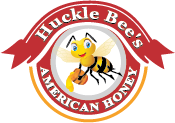Pollination I.Q.
See if you can tell if bees played a role in the pollination of a fruit or vegetable in the following pictures. The answers are below each picture.

Ok, this first one was probably easy for you. Honey bees and other wild bees are the best pollinators of strawberry flowers by a wide margin.

The main pollinators of coffee flowers are different kinds of bees. ... Other pollinators of coffee include many different kinds of wasps, large flies, butterflies, moths, and even sunbirds.

Pumpkins plants are not naturally self-pollinating and require the help of insects, such as bees, for pollination to occur. Bees wander from plant to plant, and can pollinate your pumpkins with pollen from other varieties or members of the cucurbit family.

Sesame flowers are commonly pollinated by insects of the orders: bees (Hymenoptera), beetles (Coleoptera), moths and butterflies (Lepidotera), and flies (Diptera). Like many food crops, bees are responsible for 80-90% of the pollination in sesame. Sesame can be very beneficial to rotate in a cropping system.

Uh, no. Although this does look good, the only possibility for the bee's having a role here would be if the chef used honey in the marinade. This was to make sure that you were paying attention.

Since the cashew is dependent on pollination by insects, visitation of bees (halictid bees, honey bees, stingless bees and solitary bees) to flowers is crucial to increase yield, so yes to cashews. The aloe plant, well..depending on the species, aloes are pollinated by various birds and insects. Many other species of insects, birds, and mammals are pollen or nectar "thieves," that feast on these plant products without contributing to pollination, and in some cases even consume entire flowers before they set seed.

Ok, almost every food in this picture is pollinated by bees. However, some of the most widely grown commercial crops are pollinated by wind. Wheat, rice, corn, oats, and others plants forgo expending energy on attracting pollinators and simply release and capture pollen as it moves through the air.

33 species of wild bees pollinate coffee beans. Tea comes from an evergreen bush in the Camelia family. Its flowers are pollinated by bees.

Vanilla beans have survived through centuries because of the melipona bee. It is (maybe was) the only bee on earth that was capable of pollinating a vanilla orchid.
Thanks for taking the time to read this page all the way to the end. For your reward, here's a promo code that is nested only here in the middle of the last part of the page. Email or call us and mention the pollinator IQ to receive twenty five percent off any class, and five percent off any product, including bees!
As for more information about bees and how you may help, contact us or even join (are just attend!) your local county beekeeper's meeting. You'll find beekeepers make themselves available to help one another, especially "newbees" in the field.

